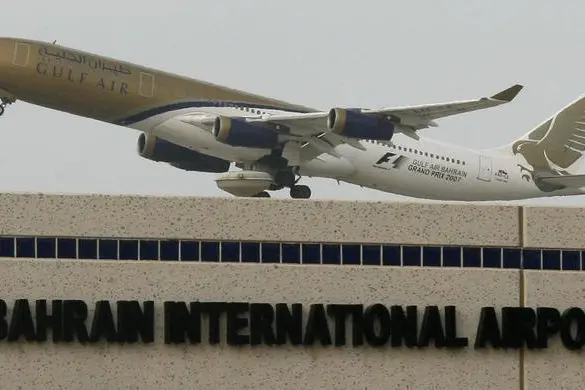PHOTO
A NEW study to evaluate the risks of bird strikes at Bahrain International Airport (BIA) is set to be launched.
The Bahrain Airport Company (BAC) is looking to appoint a wildlife control consultant at BIA to mitigate such risks.
“It is the intention of BAC to appoint a wildlife control consultant to provide a comprehensive survey to study, analyse, identify and evaluate BAC’s current bird strike risk profile of Wildlife Control Programme for BIA’s flight operations and compare it with the previous study conducted,” said the tender.
This comes as part of measures to meet the standards set by the Transportation and Telecommunications Ministry in 2016 which state that the operator must ‘take appropriate action’ to reduce risk to operations by adopting measures to minimise the likelihood of collisions between wildlife and aircraft.
Such incidents, known as bird strikes, cause thousands of bird deaths annually worldwide, and also result in aircraft damage and cancellation of flights, costing the International Civil Aviation Organisation a reported $1.4 billion annually.
While they most commonly occur during take-off, landing, or low altitude flights, they have also been reported at altitudes of more than 9,000 metres above sea level.
Bird strikes have affected regional carriers in the past such as in January 2014, when a Gulf Air flight from Thiruvananthapuram was diverted back to the airport after an incident shortly after take-off.
In February 2019, a FlyDubai flight to Jizan in Saudi Arabia was also forced to turn back to Dubai, with the flight delayed by almost four hours following a bird strike.
Bahrain-based wildlife photographer Saidalavi Ambalath Veetil has commended the decision believing it will help protect the country’s annual winged visitors.
“The country’s east and north-eastern coasts are a major hub for migratory birds in the winter, therefore this is a good step to protect them from potential collisions,” he said.
“The Arad Lagoon nearby attracts a plethora of birds that are at risk during the migration process.”
He believes that birds have become more vulnerable due to man-made activities and environmental disruptions.
“Migratory and local birds nest in marsh areas and with their removal are forced to relocate to other places with food sources, such as residential areas.
“Also, people like to feed the birds, which is not recommended because they start to associate humans with food.
“This creates a bigger risk of collisions leading to needless bird deaths and disruptions to flight operations,” he added. “The new role will hopefully help.”
Bahrain Bird Society president Yousif Alasfoor, however, is not convinced there is much to worry about.
“Most of the birds you will find nesting in the area around the airport are local species, such as bulbuls and pigeons, which do not represent a major risk of bird strikes,” said Alasfoor.
“Even migratory birds which gather nearby in the Arad Lagoon are not a risk to planes, especially in the busy summer months, as they do not migrate during that time,” he added.
The aircraft engineer, a graduate of London’s Kingston University, spent his final year of university studying airplane accidents and risks, including bird strikes.
“In Bahrain, it is very safe and we do not face bird strikes very often.
“It is different in places like Saudi Arabia, because they have more airports, more airline operations, and more bird species.
“I do think it is important to keep a database of bird strikes for the country, however, but even with the appointment of a consultant, I doubt there will be a noticeable decrease recorded because there just are not many strikes to begin with,” he added.
The tender for the consultancy position is currently open and will close today. Those interested can visit tenderboard.gov.bh for more details.
Copyright 2022 Al Hilal Publishing and Marketing Group Provided by SyndiGate Media Inc. (Syndigate.info).





















